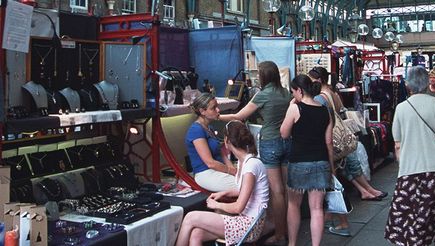Our everyday purchases are influenced by a complex set of factors, from price to quality to how the product or service makes us feel emotionally.
Research carried out by the Harvard Business Review found that customers who are emotionally invested with a brand are more than twice as valuable to a business, since they are more likely to recommend their experiences to friends and families.
Here, AXA examines the big brands leading the way at getting to the heart of their customers’ needs and what you could adopt for your own business to help foster loyalty.
Keep it personal
Today’s customers want businesses to know who they are and what they stand for. Many are willing to hand over personal information in exchange for access to a high-quality, personalised service that reflects their interests and needs. Utilising customer data is central to brands like Amazon, Netflix and Spotify, who offer curated experiences to users based on their previous behaviour.
Spotify’s “Your 2017 Wrapped” campaign is a good example of a big brand connecting with consumers via personalised content. Plugging into users’ Spotify accounts, it provided each person with fun facts about their personal listening habits throughout the last year. By offering curated playlists and providing facts around user listening habits, Spotify tapped into the emotive power of music to create content that made customers feel special.
What you can learn
Your business may not process the same volume of customer data like Amazon or Spotify, but you could use customer feedback to provide a personalised service. Why not try using your social media channels to ask customers what brands and products they would like to see on your shelves, that bigger stores can’t offer. Many independent retailers already offer bespoke products, so this could be a good way to connect with customers’ desire for locally sourced goods.
Building trust is a must
Much like the underpinning of any solid relationship, customer trust is vital to brands encouraging shoppers to spend their hard-earned money. However, a recent study revealed that British consumers’ trust in brands is in crisis, with 42% of consumers claiming to distrust brands. Today, trust is more difficult to win and even easier to lose, so brands must work harder than ever.
To win back the trust of its shoppers following a series of reputational challenges, Tesco launched its Food Love Stories campaign in early 2017. Focusing on how good food brings people together, the campaign featured real people sharing the stories behind the recipes they’ve made for their loved ones. Not only did this campaign put a human face on the Tesco brand and its products, it utilised the emotions of each story to resonate with customers. The campaign has helped deliver a 53% improvement in quality scores, making it Tesco’s most successful campaign ever.
What you can learn
Part of the success of Tesco’s Food Love Stories campaign lay in the fact it provided answers to the question we pose every mealtime – “What do I want to eat?” – as well as tapping into the emotions of its customers via the real-life stories behind each recipe.
If you’re a café or restaurant owner, why not tap into the emotive power of food to start a conversation with your customers? You could use social media to ask customers to submit photos of their favourite dishes from your business, share staff recommendations on what people could try on their next visit, and poll customers on what specials you should run in the future. This could be great way to foster a local foodie community and encourage long-running conversations.
Reward loyalty
From Tesco Clubcards to Costa Coffee Club, loyalty scheme rewards are perks that many customers expect. Rachel Barton of Accenture argues that to set themselves apart, brands should appeal to the emotional side of consumers by providing loyalty schemes that provide real value to customers.
O2’s Priority scheme rewards customers with bespoke experiences, discounts on high street brands and pre-sale access to gigs and events based on their interests. These rewards make customers feel special and have become successful by integrating into customers’ lifestyles. By getting exclusive access to the events that matter to them, customers link the positive emotions associated with them to O2, increasing their loyalty to the brand.
What you can learn
Customers want to feel valued you when they shop with you. Whether you’re a coffee shop owner or a barber, why not try introducing a loyalty card that offers customers discounts or free products the more they interact with your business? Like O2 Priority, consider how the services you offer should can make the lives of your customers easier. If you’re a grocer, consider setting up a collection and delivery service so that busy customers can easily tick another task off their weekly to-do list. These positive experiences could help reinforce return visits.
It pays for businesses to stay in touch with customer emotions. Whether through offering personalised services, utilising social media to start a conversation with your customers, or offering rewards to your most faithful shoppers, gearing your business strategy to the emotional needs of your consumers could help strengthen brand loyalty and trust.






